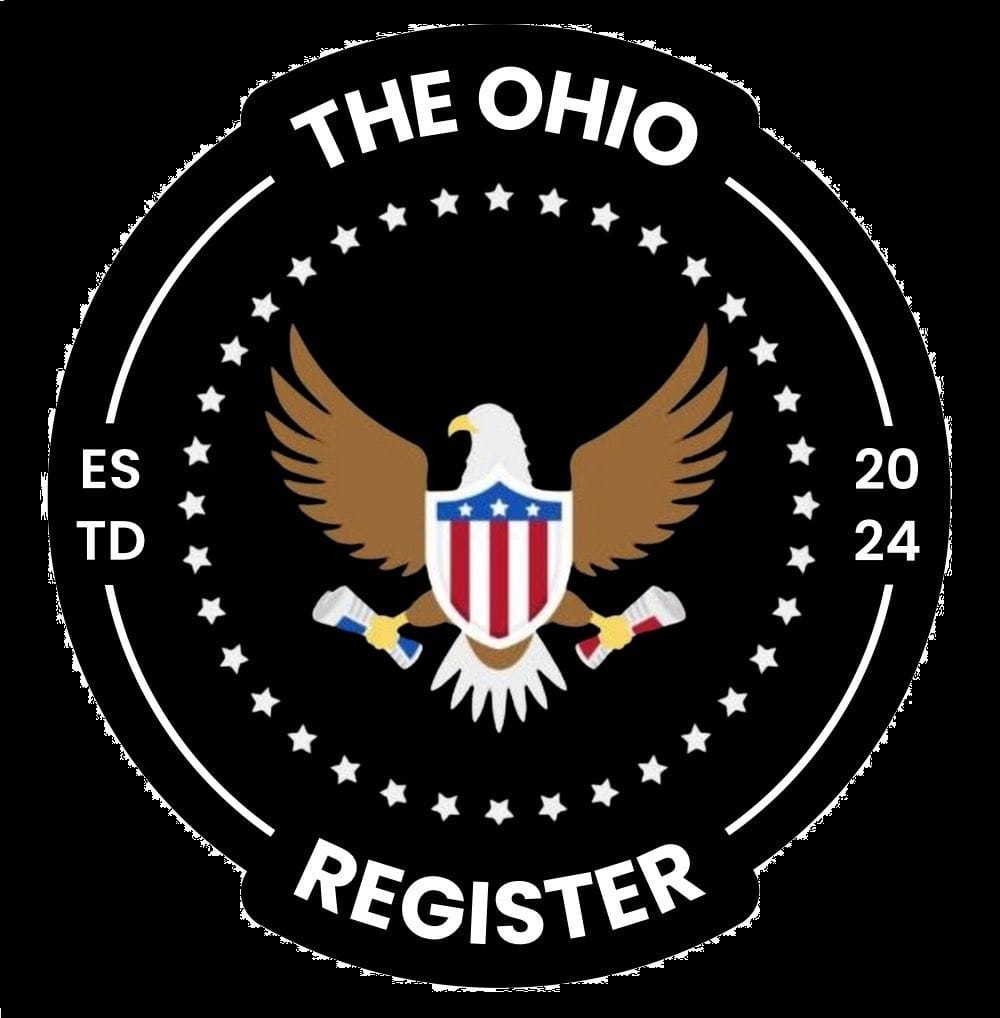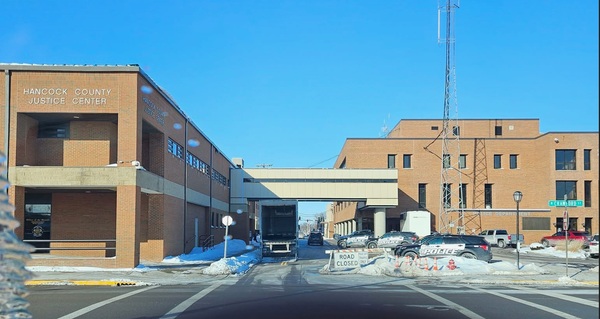Survey Shows Springfield Divided Between Citizens And The ‘Stakeholders’ That Benefit From Their Replacement
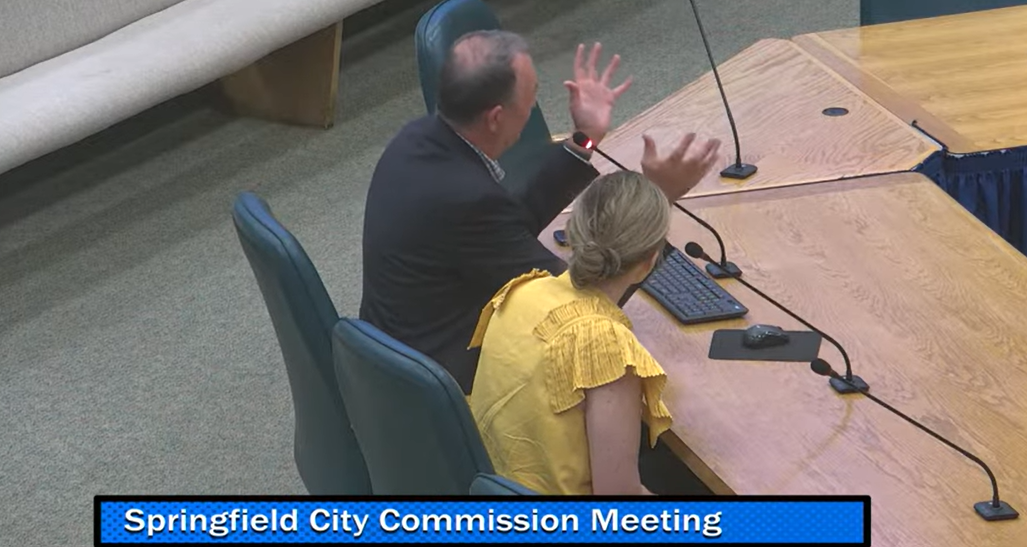
BY JEFF SKINNER
SPRINGFIELD - On Wednesday, September 23, The Springfield City Commissioners heard a presentation from representatives from Future iQ, a consulting firm which is spearheading the initiative to create a comprehensive plan for the city that will take it into the future, whether residents want it or not. The project, titled Springfield 2051, seeks to take input from ‘stakeholders’ and opinions from residents about the issues that matter most to them. Preliminary data has shown the city could not be more divided. Quite obliviously, both Future iQ and the commissioners seemed to miss the answer as to why that is which was emblazoned on a presentation screen in front of them.
On April 9, 2025, Springfield City Commissioners authorized a contract for $50,000 for Future iQ, an international and globalist-leaning consulting firm, to create an ‘action plan’ for the city, essentially strategizing how to propel the city into the next stage of economic development. While it is not unusual for municipalities to contract out strategic planning, Future iQ as a company was a unique choice given their globalist and left-leaning views on economic development and their proprietary strategy of ‘scenario workshop processes’ which seem to be primarily used to usher residents into preordained destinations.
According to the presentation from future iQ’s CEO David Beurle and Springfield 2051 steering committee chair Marta Wojick, the idea for employing a ‘process’ to direct the city’s future came as a direct result of the city’s unflattering representation on the national stage last year from Trump's comments.
“I have to say it's been such an encouraging process because this came as a coalition of basically residents who wanted to do something positive [and] productive with our energy, pent up energy I suppose, after last year and how we felt that we were unfairly portrayed on a national level,” Wojick said. “We all came to a conclusion after talking to many citizens that we really need a process. We really need a community building process. We need community engagement as part of it and figure out what our vision is for the community and I'm particularly grateful to people who have been through processes like that and um came on board because they feel like this is the right time.”
This conversation must have inevitably led the community ‘stakeholders’ to enlist the support of Future iQ and David Beurle, to help reform the image of a city acting outside their mandate as representatives of the citizens. According to articles published by Beaurle, available on LinkedIn, Beaurle envisions a future in which communities are converted into SMART cities with totally renewable ecosystems that have reduced car-centric designs, conversions of meat staple diets to beans and lentils and ‘inclusive’ communities that are above all else, welcoming. Beurle’s articles couch these positions in short paragraphs painting the world as unified in its approach to these endeavors, implying a globalist mindset of the author, within local communities, even if national politics vehemently disagrees with this. More importantly is the organization's approach to strategic planning as outlined in international publications.
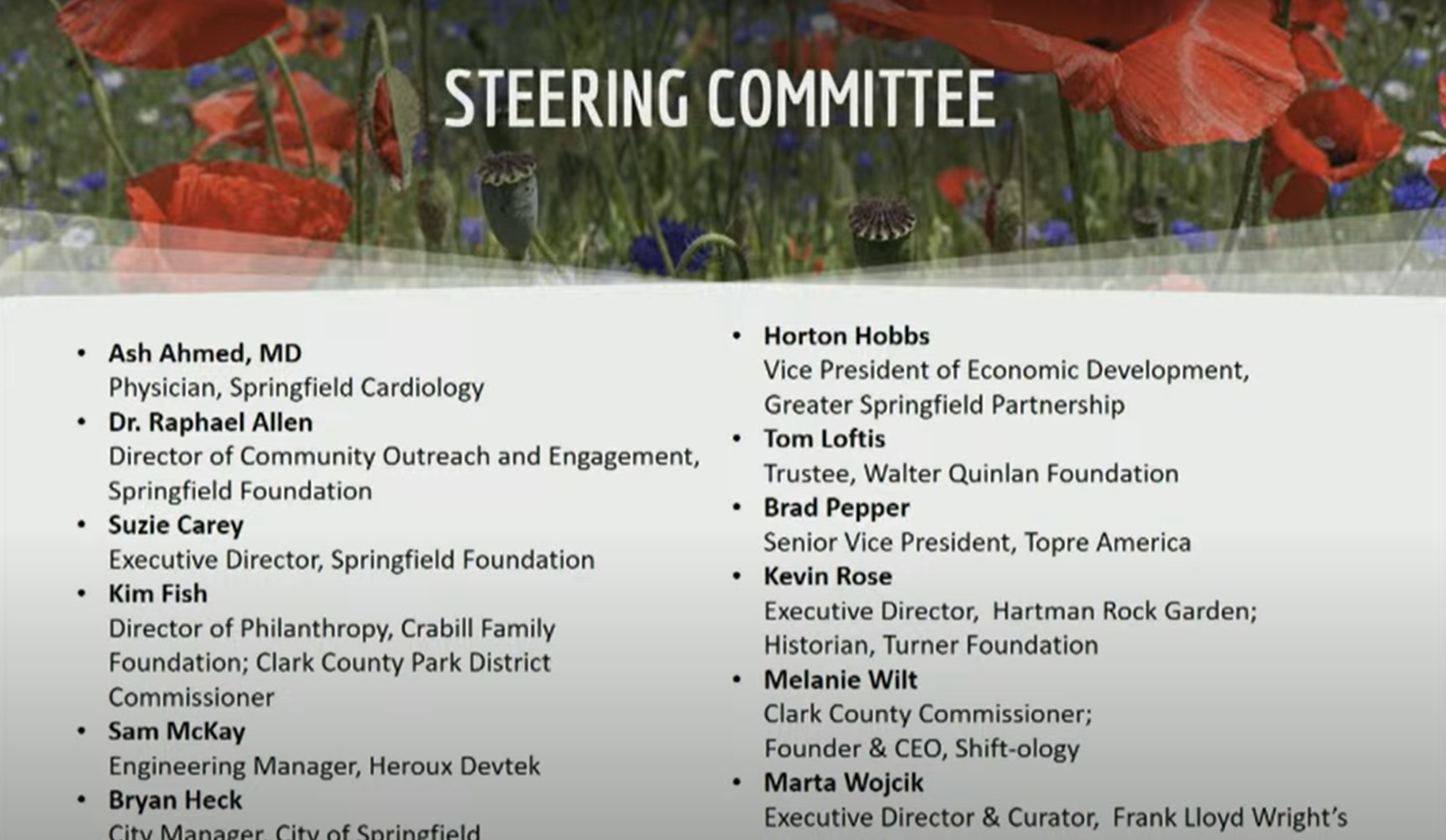
“We have developed a simple, paper-based scenario game concept as a means of engaging people ‘actively’ in futures thinking and in altering their perceptions of the future of a region. The game was designed to present scenarios at a reduced temporal and spatial scale while adding the extra dimensions of participation by groups in decision-making and immediate representation of the implications of decisions.”
According to their publications, the strategy for Future iQ planning is to create scenarios and simulations within the committees which will look at long-term agendas of the local ‘stakeholders’ and community governance using data received from actual residents to gauge hypothetical responses. In short, if government leaders and ‘stakeholders’ have a desired outcome in mind, Future iQ could help them troubleshoot local responses to residents using their ‘futures game’ simulation. Were one looking to try and sell a desired outcome to the residents, the futures game would be a great way to troubleshoot any hiccups. These strategy sessions are typically long-term planning scenarios decades in advance, hence the moniker of Springfield 2051.
Within Springfield, that outcome, whatever it may be, is likely to be incredibly tenuous. During the presentation, Beurle showed images of project funders and what they refer to as ‘stakeholders’, a term that emerged from the newspeak of the covid era to refer to companies and nonprofits whose revenue streams are tied to the geographic territory in question.
Many of the organizations listed as funders actively profit from the current financially disastrous direction of mass migration and replacement labor within the city, including Clark State, which has received $250,000 in grants for ESL programs for Haitian migrants. They are also currently using federal grant programs, including $3.5 million from the WIOA program, to fund workforce training initiatives, like CDL truck driving with immigrants as a primary recipient. As another example, The United Way launched the 'Unity Fund' which operates as a fund donation depot for the Haitian population in Springfield, essentially creating an entire department under their management for TPS support funding disbursement.
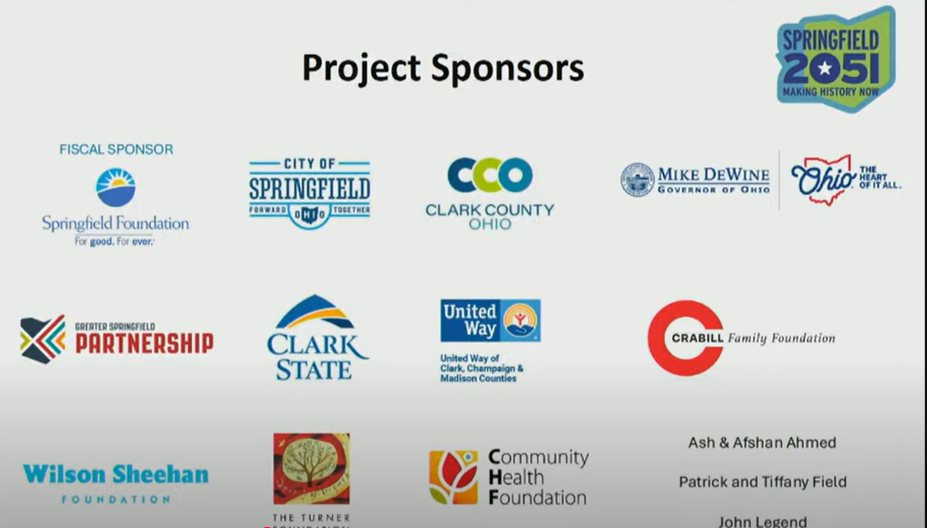
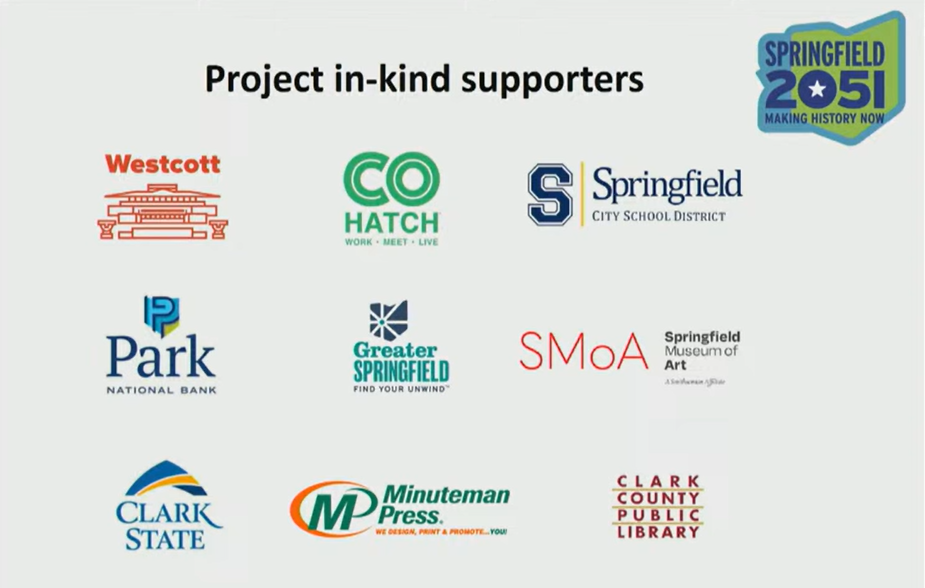
Unsurprisingly, those stakeholders and residents who have already been contributing information have presented ideas which oddly already align with where Future iQ sees the future of every community, unified and micro access to transportation, increasing sustainable agricultural opportunities and an increase in ‘community identity’ that involves diversity, equity and inclusion.
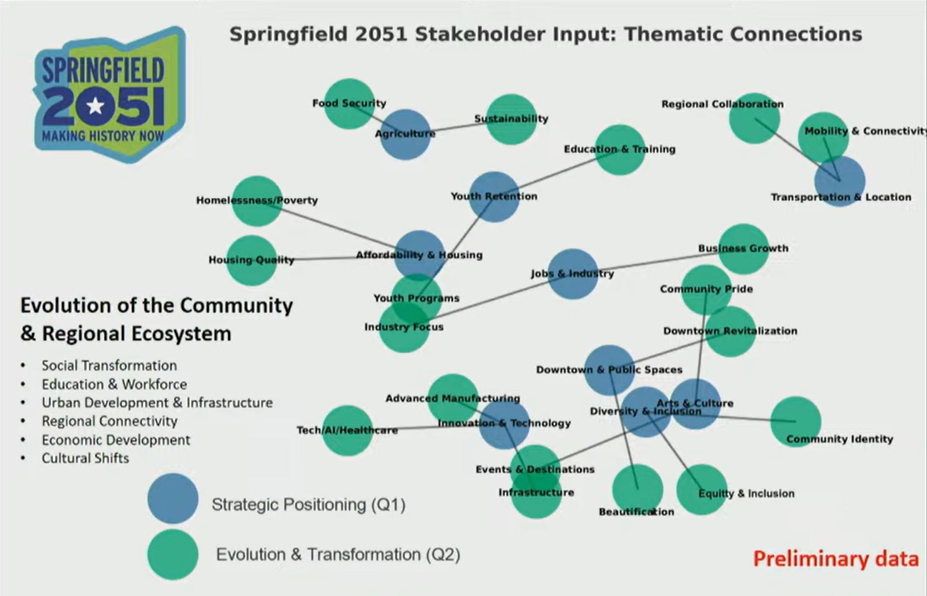
Confusingly, among the data Future iQ presented was the preliminary data on community dynamics. Somehow, despite all of the community stakeholders who offered a unified vision that perfectly aligned with The World Economic Forum’s vision of communities of the future, the vast majority of residents polled stated the community is incredibly divided. One might interpret the presented data as community ‘stakeholders’ who have an ideal vision of the future that generates revenue for themselves through things like replacement migration and SMART city initiatives, recognizing the residents of Springfield do not share their vision. It may become Future iQ’s job to help ‘local leaders’ find some way to better sell the unified vision of Springfield’s ‘stakeholders’ to the residents that will be forced to endure it.
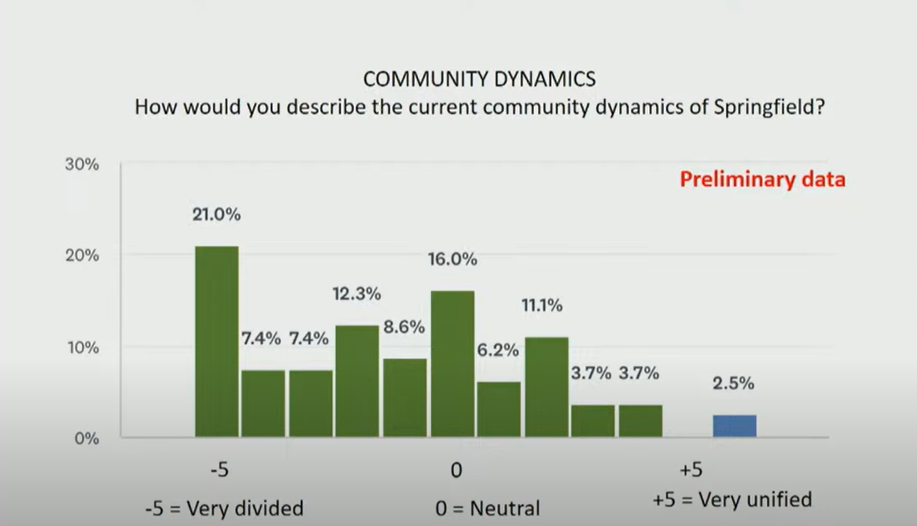
“I know this is something you deal with in a very tangible fashion,” Beurle said. “but it's unusual to see a community sort of biased or skewed towards the number of people there saying that they feel the community dynamic is very divided. In fact, there was nobody who's picked the plus five which is very united.”
Surprisingly, the commissioners did not seem to comment on why the community may feel so divided after they spent $50,000 to hire a globalist consulting firm to sell residents on a 'stakeholder' agenda that will profit from their replacement.
Ironically, during the public comments section, a Springfield resident illustrated the exact divide between those who must live through globalized initiatives in Springfield and those who enact it with perceived absentmindedness. During the meeting, a resident asked the commissioners what their strategic plan was for when they run out of money and resources to support their immigrant labor force. While Mayor Rue closed the comment section without addressing this inquiry, it was immediately followed up with a report from Commissioner David Estrop on the city's hunt for more federal tax dollars.
Those wanting to take the Springfield 2051 survey to outline their concerns over the direction of the city can do so here. Below readers can find copies of the Future iQ patented strategy blueprint as well as published articles from the CEO referenced in the article above.
